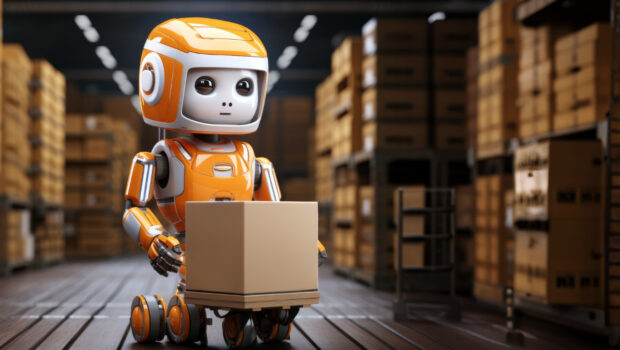The Impact of AI on Supply Chain Management
The supply chain management industry is undergoing a massive change. The era of manual supply chain procedures, data piles, and hastily made decisions is over. Artificial intelligence is quickly altering these tasks by bringing automation and intelligence to every stage of supply chain management.
This blog post will walk you through the impacts of artificial intelligence on supply chain management.
Increasing precision and efficiency
The capacity of artificial intelligence to automate repetitive tasks and boost overall efficiency in supply chain management is one of the most important benefits of the technology. The AI can handle:
- Simplify customs declaration: Supply chain management in international trade faces a lot of challenges, such as customs declaration, which is made easy by AI. Customs declaration software powered by AI can help reduce manual documentation and expedite procedures.
- Demand forecasting: AI can make more accurate predictions about future demands by analyzing customer behavior, previous sales data, and market variations. This helps businesses avoid overstocking and stockouts by enabling them to pre-order products.
- Inventory management: Artificial intelligence can maximize product availability while reducing inventory levels based on real-time demand estimates.
- Route optimization: Artificial intelligence can determine the best cost-effective delivery routes for transportation fleets by analyzing variables, including
- Traffic data
- Fuel prices
- Weather patterns :
By automating these tasks, AI can free up human resources to fulfil other important duties.
Improved visibility and predictive care
Artificial Intelligence provides firms with improved supply chain visibility. It can be used to analyze real-time data from sensors and linked devices to predict possible disruptions before they happen. This makes it possible to make pro-active decisions like:
- Predictive maintenance: Artificial intelligence identifies any possible faults by analyzing sensor data from equipment, which helps minimize production delays and downtimes.
- Risk management: Artificial intelligence can immediately spot possible interruptions brought on by any geopolitical events or delays in transit by analyzing social media data and news feeds. This prepares businesses to develop backup strategies to tackle these risks.
Moreover, real-time cargo location information may be obtained using AI-powered track and trace systems, enhancing customer satisfaction and transparency.
An adaptable and flexible supply chain
The modern market is dynamic, which necessitates a highly responsive and flexible supply chain. AI is essential to obtaining this agility since it:
- Dynamic price and promotions: By analyzing real-time market data, artificial intelligence may strategically modify prices and promotions to increase sales and profitability.
- Better customer experience: AI-driven chatbots can respond to questions about products and offer immediate customer assistance, which increases customer satisfaction.
AI’s role in supply chain management future
Artificial intelligence prospects for supply chain management are promising. Here are a few examples of how AI can do wonders in supply chain management:
- Advanced automation and robotics: When collaborative robots working alongside humans become widespread, tasks will be further automated and operational efficiency will be increased.
- Cognitive supply chain: AI will be able to learn from and adjust to events as well as react to them, resulting in totally cognitive supply chains. It will be capable of predicting changes instantly and optimizing procedures accordingly.
- Hyper-personalization: Artificial intelligence will allow products to be delivered in a personalized way, meeting individuals’ unique needs.
Embracing the artificial intelligence revolution
Those who adopt AI will lead the supply chain management industry in the future. Businesses may attain the highest level of efficiency, agility, and customer happiness by implementing AI technologies and fostering a data-driven culture. By making an AI investment now, you can make sure that your supply chain is future-proof and prepared to prosper in the constantly changing world of international trade.
Cover Image by Freepik
















